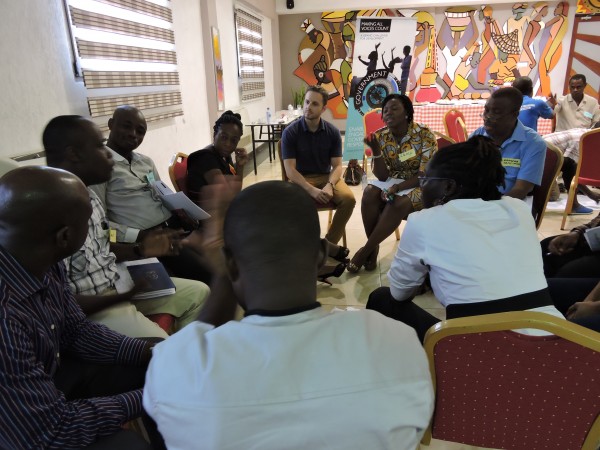The starting point
It was clear from the beginning of the Accra meeting that the discussions would be frank and open. The Communities of Practice in Ghana bring together actors from government, media, civil society and traditional leadership for constructive talks on how to support more effective, accountable governance – but they start with an open exchange about what the key issues are, and where current systems aren’t working:
Media also have a Corporate Social Responsibility, to spread the message, to educate citizens and to communicate with ALL citizens, using a range of platforms and tools to reach them.
-Rachel Gyabaah, SEND Ghana
Who sets the agenda for Communities of Practice?
In short: everyone. Communities of Practice are only successful if they work for the people involved and are driven by local actors, not by an external project – so the Making All Voices Count team began by asking a series of questions to prompt discussion on what good governance looks like to the group, and also what hinders their work to achieve it. The answers formed the basis of a consensus statement that rested on shared needs and shared accountability….
Government is not the enemy.
The way forward
The Community of Practice agreed that good governance is not simply a product of good government but is a system of checks and balances, driven by the needs of ordinary citizens, reflected by the media and civil society, and supported by government actors who are empowered to respond to citizen’s issues.
The team prioritised supporting activities that work with government from the beginning, building trust, finding alignment with local government priorities and promises, and helping to take down the barriers that separate government from those they serve. They also discussed how to achieve closer collaboration between stakeholders – in particular the media and civil society – and argued that open projects they work on in the future must evaluate provision of information from the perspective of the end user.
Final thoughts
The meetings in Tamale and Accra were the first in what we hope will be a self-supporting series in Ghana. The South Africa and Liberia Communities of Practice now meet regularly with limited support from Making All Voices Count, finding new partners, projects and ways of working, which we could never have envisaged when we first asked people to join. Two of our South African Community of Practice partners, Yowzit and Foundation for Professional Development are already working on a joint project evaluating public health services, completely outside of Making All Voices Count support.
By setting up these Communities of Practice we hope that we are contributing to effective, sustainable partnerships that long outlast Making All Voices Count itself, and look forward to bringing more stories of change as the Ghana Communities develop.
